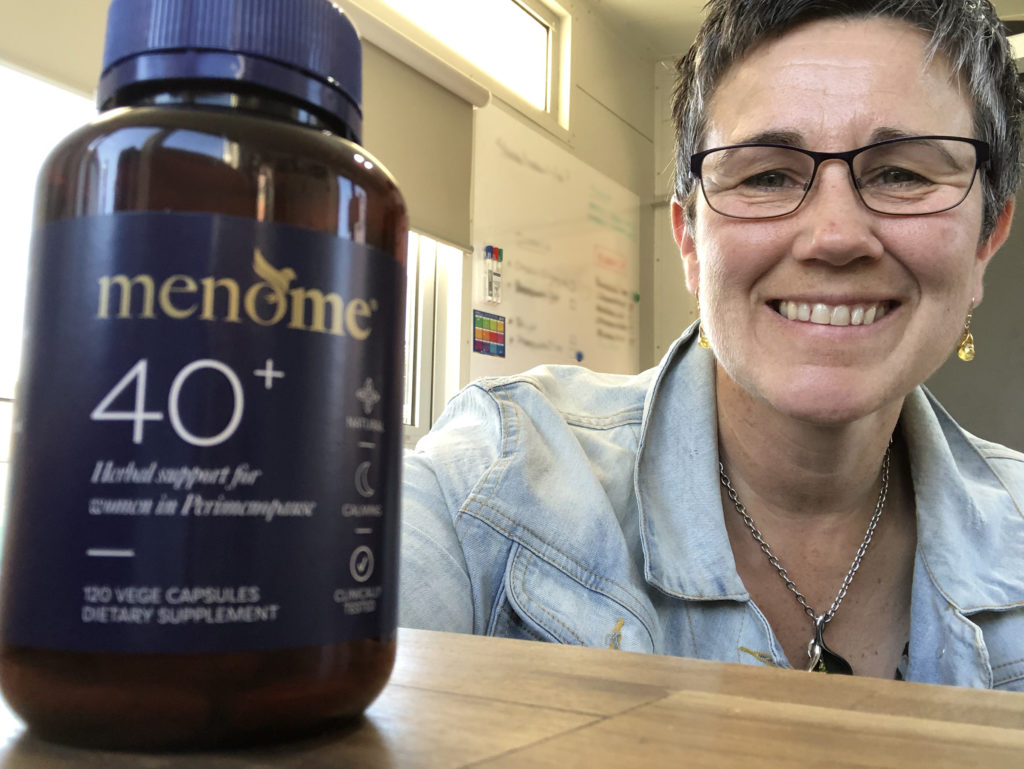Women Like Us: Deanne’s 40+ and 55+ Journey Part 2

I’ve been taking 40+ every day since December 2015 when I was 46.
Sleep was my main issue. I would lie awake for hours with my brain unable to shut off from my busy days.
As a result of taking 40+, my sleep has been fantastic. Apart from a couple of short – what I like to call ‘blips’ – along the way. At these times, I didn’t sleep so well for a couple of weeks at a time. (I described this in Part 1 on My 40+ Journey). Now though, apart from two isolated instances, I’ve been sleeping better than I ever have. So you can imagine my protest recently when I was asked to stop taking my 40+.
Why was I asked to stop taking 40+?
I needed to undergo minor surgery. Consequently, as part of the preparation, I was told to cease taking herbal supplements two weeks prior. I guess this is because of anything to do with supplements that might interfere with anaesthetic or blood thinning.
Subsequently, I reluctantly stopped and about four days later I found myself lying awake at night once more. It was the same scenario as back in 2015 – I was unable to shut my brain off. Over the following two weeks, I lay awake thinking about everything for hours.
So off to the hospital I went with my 40+ packed in my bag ready to start again that night. My surgery was successful and I looked forward to leaving. However, the nurse informed me I should continue to refrain from taking supplements for at least another week.
Oh no, WHAT!!!
I had had a good sleep the night of my surgery (due to the anaesthetic and all the pain meds). But then I experienced another week of unsettled sleep. I went back on 40+™ exactly one week later. From there, it was about five days before I began going to sleep quickly and staying asleep again. I remember one sleep was so good I was pretty much dancing when I got out of bed, LOL!
Yay, now I can carry on with my busy life and training for my events.

My Conclusion
Although I wasn’t happy about not taking 40+ for three weeks I looked at it as an experiment. I had been taking it for a long time, I was still relatively young 🙂 and I was only just beginning my menopause journey. So from time to time, I did wonder about 40+. Was it really improving my nights or had my sleep had simply come right?
Not so it seems. My reluctant experiment confirmed the effect 40+ has on my hormones.
Fluctuations
This article is not to say 40+ has ‘cured’ everything.
No, not at all.
As we all know nothing is a panacea when it comes to our pesky hormones.
But.
Ta da.
My sleep is way better than what it was before I started taking 40+. And I feel good overall – positive and full of energy.
However, I’m realistic about the fact that these things fluctuate because that’s what hormones do at this time of life.
Add to that the changes that naturally happen in our life cycles. I’m getting closer to 50, life is becoming more full-on with expanding businesses, a growing family and more sports events.
Plus I’m getting the anaesthetic out of my system from two surgeries in eight months. So things are bound to ebb and flow for a wee while.
Just saying 🙂
Did you miss Part 1? You can read it here.








